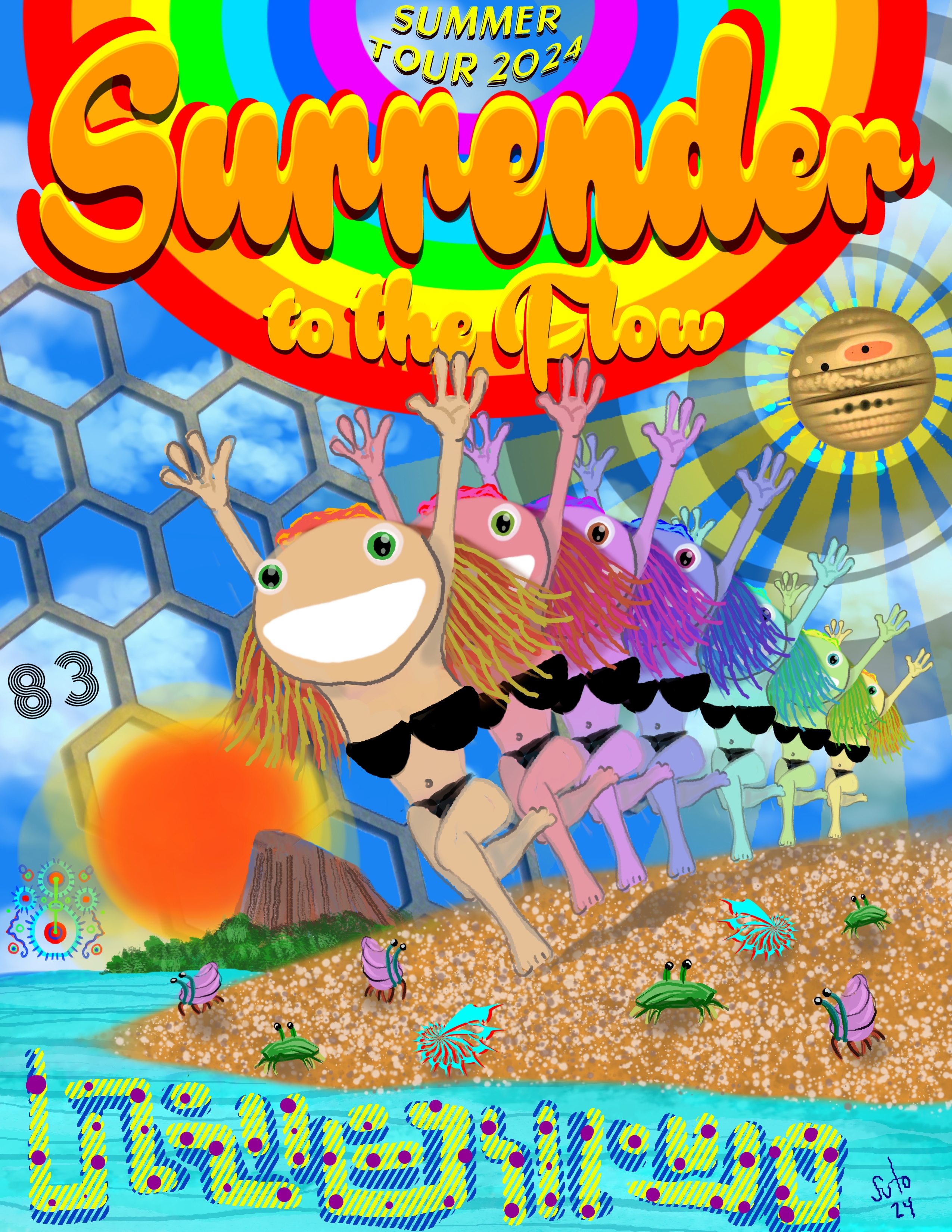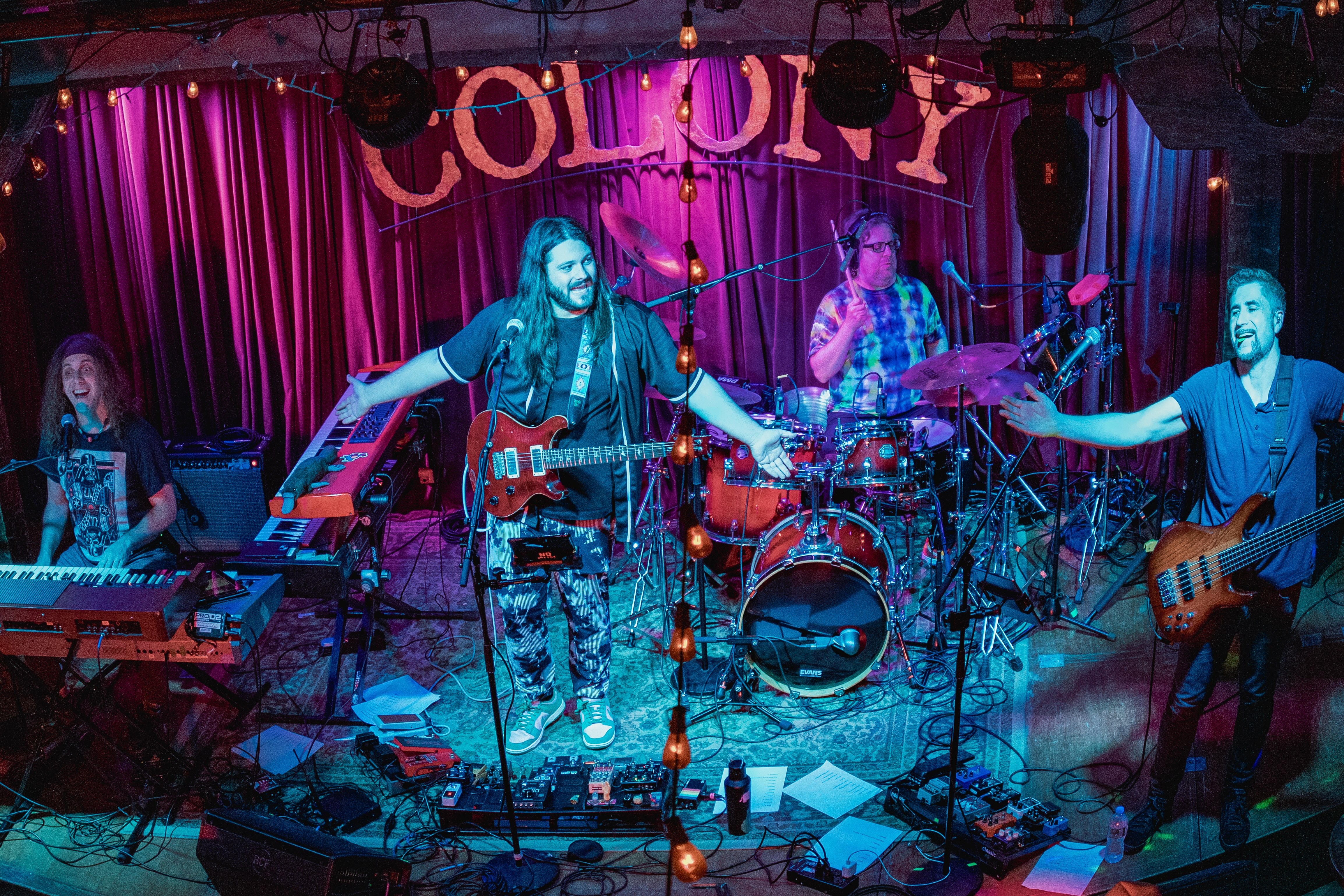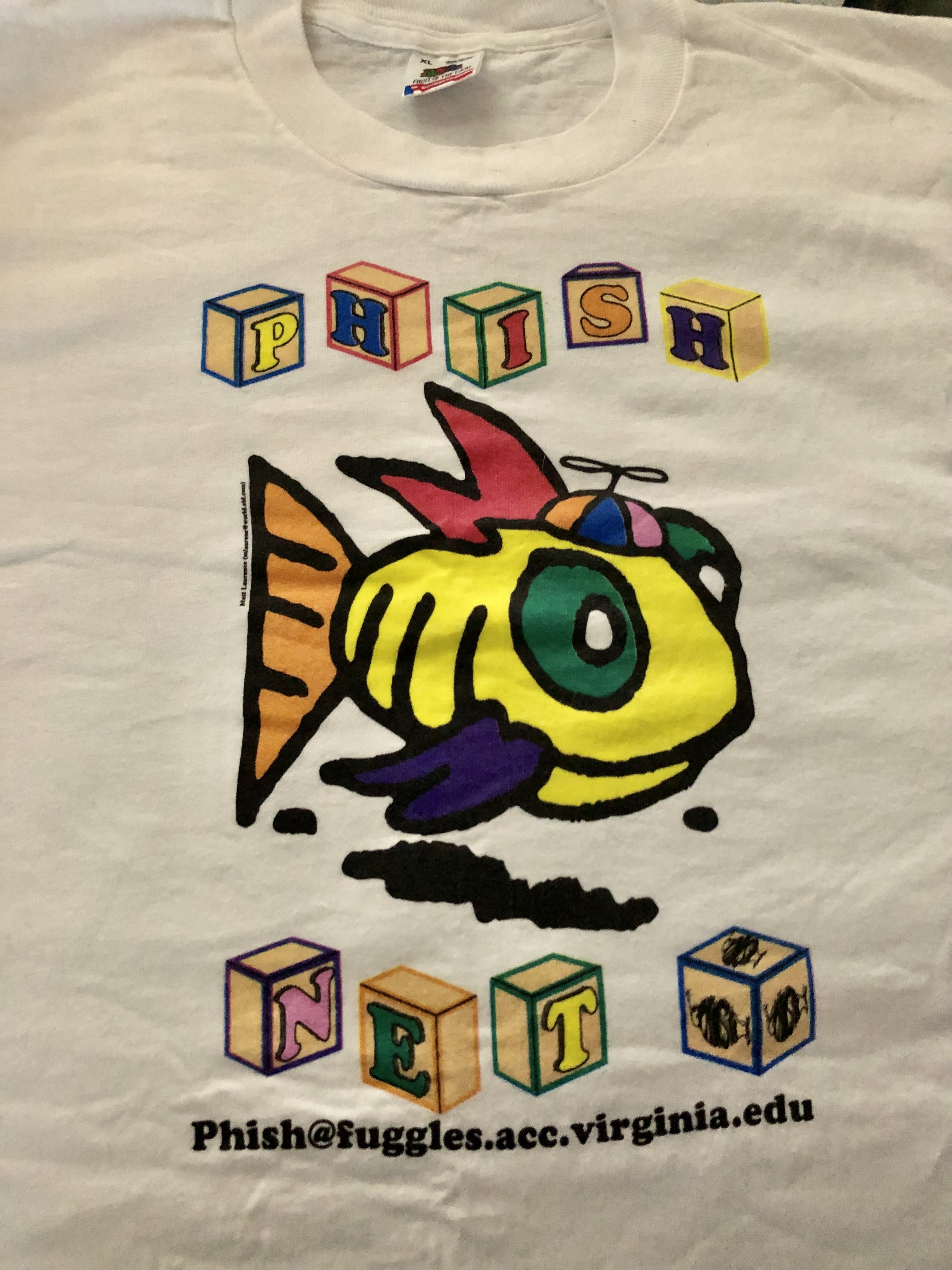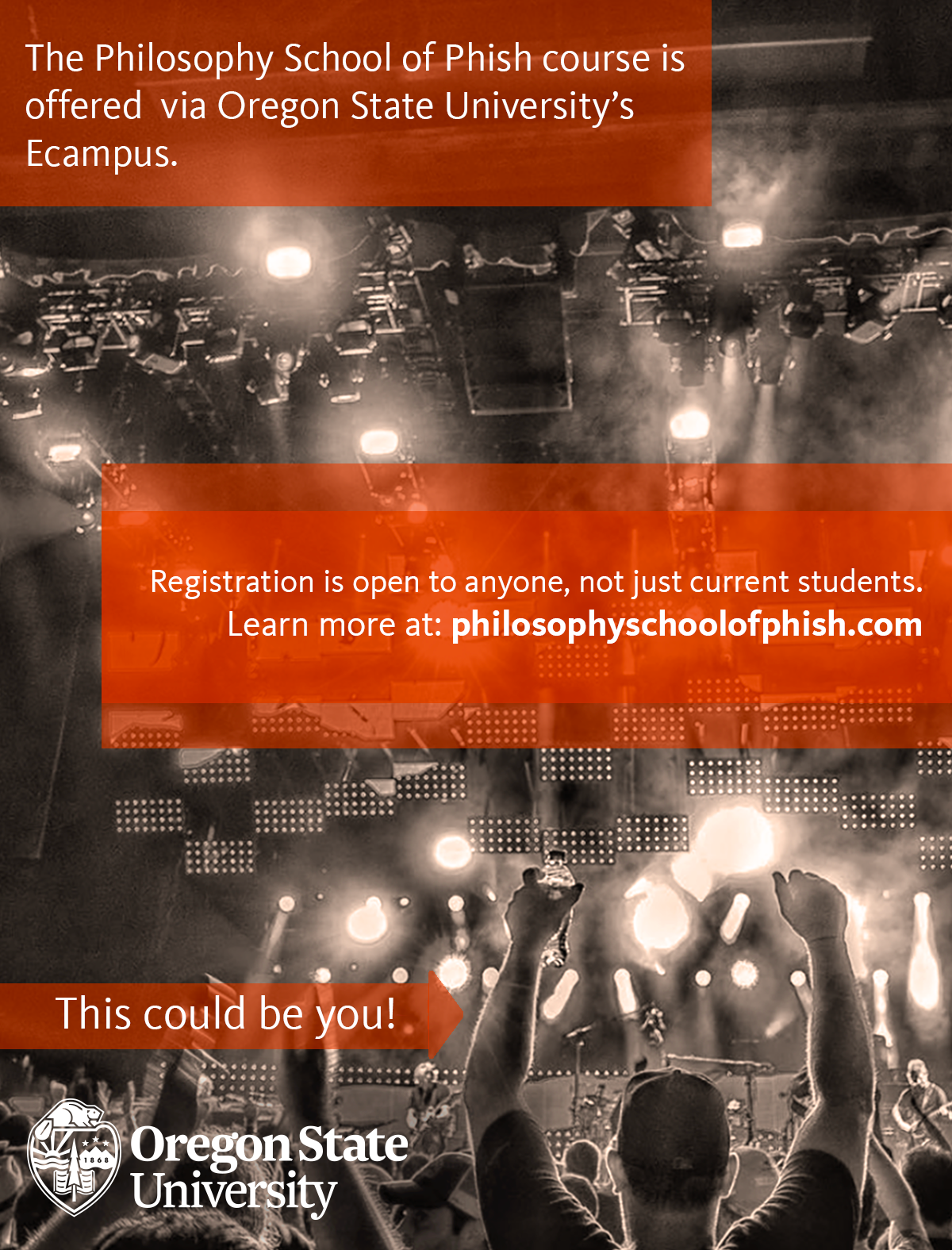MANSFIELD3 RECAP: BLOW YOUR FACE OUT
[We would like to thank Patrick, user @robertpollardisaplorb, for this recap. -Ed.]
Having seen my first Phish show on the Xfinity Center lawn in 2010, this weekend of shows allowed for plenty of reflection on just how far things have come since those days. I had spent the last two nights in the pavilion solo, but opted to spend Sunday on the lawn to dance with friends new and old during the night’s festivities. As the band entered stage left and got settled in, my friend quickly sensed the incoming "Free" opener.
Following a fun and standard “Free,” Phish were quick to uncork the jams with the dependable “A Wave of Hope,” the jam itself veered into a fun celebratory major jam in many ways reminiscent of the Camden 99 "Chalkdust," and eventually settled into a dark synth space before coming to a peaky close.
.jpg)
MANSFIELD2 RECAP: BETWEEN THE PINES, THERE'S A LIGHT THAT SHINES
[We would like to thank Oliver Pierson (phish.net user VermontCowFunk) for this recap. -Ed.]
Phish summer tour is arguably the second most wonderful time of the year. Everything feels right when you set off to a summer show, ticket in hand, a musical adventure in store, friends by your side. I hadn’t seen the band since 12/29/23, and I was excited to hear where their very busy seven months had led them. It’s been a productive time for the band, with an epic Gamehendge NYE show, a stellar Mexico run, a short but incredible visit to the Sphere, and then all the chatter around the new album Evolve.
Phish has even felt, by their typical media coverage standards, a bit overexposed lately. This month, we’ve seen Trey and the band in Rolling Stone, WTF with Marc Maron, NPR's Tiny Desk Concert, The Tonight Show Starring Jimmy Fallon, Vulture, etc. So, they are not “Travis Kelce – Taylor Swift – Fall 2023” overexposed, but somehow it is slightly jarring to have them in the public eye so much. I had to wonder how all that attention jives with one of Trey’s comments in the Rolling Stone article, i.e. that the lack of mainstream success is the band’s incredibly liberating “superpower.” Could all the recent media coverage be the kryptonite that diminishes their superpower? Fortunately, an installment of Massachusetts Phish was only hours away to help me answer that question.

MANSFIELD1 RECAP: WE'RE ALL HERE TOGETHER
[We would like to thank Harrison Hartley (user HotDogKnight on phish.net and Instagram) for this recap. You can also find him as quadbasspickup.bsky.social on BlueSky and quadbasspickup@heads.social on Mastodon. -Ed.]
There is an aura to a tour opener, especially the summer tour opener. Riviera Maya and The Sphere offer appetizers for us this year, but I feel summer tour is the entrée of Phish performances.
.jpg)
PHISH AT NPR'S TINY DESK
[We would like to thank Michael Lowe of the Monumental Brass Quintet, Timbermike on dot net and @MikeLoweTPT on twitter, for this piece. Phish's Tiny Desk Concert was performed on Tuesday, July 9, 2024, but did not air until Wednesday, July 17. -Ed.]
Well it all started with a phone call from my sister-in-law Daniela on Sunday night asking if we’d like to join her at the tiny desk on Tuesday. I was immediately in a state of shock and excitement, a familiar feeling I’ve experienced many times over the years I’ve been going to see my fav band.
.jpg)
SURRENDER TO THE FLOW #83, SUMMER TOUR '24
Surrender to the Flow #83 is now PRINTED and is on its way to DISTRIBUTORS who will hand it out on lot to get it to you for free! HOWEVER, if you want to DOWNLOAD THE DIGITAL VERSION INSTEAD, it is available to you at www.gum.co/sttf83.
This issue is full of good stuff for you! It includes information about this year's Summer Tour including where to eat, things to do, and lots of information about each venue. You can also read reviews of Phish at Sphere in this one, too!

GOOD KARMA 2024 - EPISODE IV: A NEW WAVE OF HOPE
It’s just over a week until Summer Tour starts, and that can only mean one thing… it’s time for Mockingbird’s 4th Annual Good Karma Pledge Drive! Thanks to your collective generosity, we’ve raised over $40,000 the past three years for music education just by hoping for Phish to do cool things.
If you haven’t participated before, the rules are pretty simple. Just go here, pick the thing (or things!) you want to happen and pledge an amount for each occurrence. Enter as many times as you like! The most popular choice in past years has been to donate an amount for each 20-minute jam, but you can select one of the other options or even choose your own adventure.
I DIDN'T KNOW - A 30 YEAR PHISH FAN ORIGIN STORY
[Phish.net thanks Andrew Rose, @andrewrose, for this piece. All content on Phish.net is volunteer-driven, so if you have something interesting that you would like posted on the homepage, feel free to message @FunkyCFunkyDo or @Icculus with your idea. -Ed.]
I was driving down St Urbain yesterday, on the way to Old Montreal to run an errand. I thought waiting until 10pm or so would help me avoid traffic, but neglected to note that it was a Friday night in July, and the Montreal International Jazz Fest was still filling the air with free programming, and the crowds and cars—on the few streets that were still open for traffic—were plentiful. I didn’t mind much. The air was warm, a little humid but not oppressive. Spring and summer have been beautiful here in Montreal this year. A real contrast to the apocalyptic smog-filled skies that literally cast a cloud over the region last summer, starting with forest fires in Northern Quebec and then making their way down the American seaboard. I know those fires will be back at some point, but I’ve been doing my best to appreciate the relative blessings that this season has had to offer.

HOW TO TURN MAGIC INTO SOMETHING REAL
[This post is courtesy of Paul Peck, President and Co-Founder of Fandiem. -Ed.]
I started seeing Phish a long time ago. Back when I was a high school kid. My early shows were formative experiences and showed me how inspiring live music can be when a group of friends and like-minded half-strangers come together to share something powerful. It's the kind of thing that can't be explained but for lack of better words, feels like a shared journey that brought us to some place unexpected and beautiful. If you’re reading this, you likely know what I mean. To say those early adventures propelled me into a career in the live music industry would be the understatement of the century.

REPRISE: THE UN-FUCKING-BELIEVABLE PHISH TRIBUTE A LA DARK STAR ORCHESTRA
By Matt Hoffman (tonapdivine)
Reprise, the Phish tribute who to date has played just four shows, is most easily understood as doing with the music and spirit of Phish, what Dark Star Orchestra has been doing for decades with those of The Grateful Dead: they perform shows drawing on past Phish setlists and do so largely as Phish did, warts and all, though to hear them tell it, the “mistakes” are where the magic often happens. For the fans of standardized tests (we can smell our own), think of it this way: Dark Star Orchestra:Grateful Dead::Reprise:Phish. For the math nerds (h/t jfcnj!), ((DSO/GD) * Phish) + ∈
On June 13, 2024, I asked Tom Marshall to describe the band, who to that point had played only two public shows just four months prior at Nectar’s. (They’ve since doubled their show count, playing their third and fourth shows, respectively, at Milkboy Philly, where I spoke with Tom, and Colony Woodstock). He gave a one-word response: un-fucking-believable. Some might say it’s his job to say this, and they wouldn’t be wrong: he manages the band with RJ Bee, his co-founder in Osiris Media, the musical storytelling platform that since 2018 has published over 50 podcasts, many of them Phish-related. Others might suggest the influence of cognitive bias, as Marshall has known and collaborated with the band members for years and has played a variety of critical roles in the band’s formation and rapid evolution.

PHISHNET IS THIRTY-THREE YEARS OLD!?
PhishNet is 33 years old today, having been initially created as an email list by Matt Laurence on June 22, 1991.

REGISTRATION NOW OPEN FOR SUMMER PHILOSOPHY SCHOOL OF PHISH ONLINE COURSE AT OREGON STATE UNIVERSITY
The Philosophy School of Phish has been offering “chalk dust without the torture” at Oregon State University since 2014. Registration is open for this summer’s online course.
This summer’s class features an extensively redesigned course, offering new weekly podcasts, interviews with course authors, and a reorganized syllabus with updated readings and assignments.
Enroll now, as space is limited. Class begins June 24th! (Note: You do not have to be a current OSU student to take the course.)

WHAT SONGS MAKE THE PERFECT SETLIST?
[This post is courtesy of Ryan Smith, dot net user @ryansmith534, a data scientist formerly at Spotify.Thank you, Ryan! -Ed.]
Every Phish fan undoubtedly has their own answer to this question – but is there a universal truth across all fans? Using setlist data and user ratings from Phish.net, we can attempt to answer this question empirically.
To do this, we can borrow methodology from basketball and hockey analytics, specifically the concept of RAPM (regularized adjusted plus-minus). This metric attempts to quantify an answer to the question: how much does the presence of a given player on the court contribute to a team’s point differential? In our case, the question becomes: how much does the presence of a given song in a setlist contribute to a show’s rating on Phish.net?
We first need to gather the necessary data, a process made significantly easier because of the convenience of the Phish.net API. After doing a bunch of cleaning and manipulation, we get a dataset that looks like this:
We have one row for every show, a column with the show’s rating, and a column for every song in Phish’s repertoire – with a 0 or 1 value representing whether the song was played at a given show.
PHISH STUDIES CONFERENCE 2.0 RECAP
[The following is courtesy of Jake Cohen, user @smoothatonalsnd. Thank you, Jake! -Ed.]
“The reverse culture shock is real…”
“Having a tough time with re-entry.”
As Phish fans, most of us are used to feeling some version of this after a run of shows or a festival. Phish transports us into another world, one bound by community and a shared, intense experience, and it can be hard to readjust to “normal” life afterwards. Yet these are two texts that I got this past Monday, not after seeing Phish, but after attending an academic conference.
That sentiment is more or less unheard of after a typically staid affair, but this is exactly how I feel this week after the conclusion of Phish Studies 2.0. Co-hosted by The Mockingbird Foundation and Oregon State University in Corvallis, the conference left me spiritually charged up in the way only a Phish show can, and professionally stoked for the future of Phish Studies as a field.
.jpg)
HELPING FRIENDLY GUIDE TO THE PHISH STUDIES CONFERENCE
[The following is courtesy of The Phish Studies Conference Program Committee. -Ed.]
Your time is near, the mission’s clear! The second ever academic Phish Studies conference, co-sponsored by The Mockingbird Foundation, will take place next week at Oregon State University in Corvallis, OR, conveniently located between Portland and Eugene. In 2019, the first Phish Studies conference took place at the same university and it was a rousing success. Although academic conferences in general have taken a break since COVID, many are now back and we figured it was time to open up the helping friendly book again!
The coolest thing about the Phish Studies Conference is that it’s not just for academics. Our slate of over 50 presenters this year is full of professors and professional scholars, but also a ton of people working outside of academia who are passionate about Phish and trying to figure out ways to seriously analyze and better understand what it is that we all intuitively know and love about this band. We’ve got presentations about the legal ethics of tarping, gendered norms within the jamband scene, Phish’s place within the history of tech communities, and even the intersection of Taylor Swift and Phish culture, presented by scholars from all walks of life and careers.
.jpg)
SPHERE4 RECAP: A SPHERICAL EXPERIENCE
[This recap is courtesy of Mark C. Lynch, dot net user @Mondo_Butts, and he (and we) would also like to thank his friends users @FunkSuckle, @andrewfreeborncreative, @Sarahlyn710, @phishbiscuits11, and @juju.campbell90 for their support and input. -Ed.]
I woke up Sunday morning tired. Saturday night took a toll on me. Night 3 at the Sphere was a late one that spilled into an even later night hugging the tables. I woke up in a little bit of a fog. Grabbed some coffee and prepped for a work meeting I had scheduled. Coincidently, I spent a couple hours reviewing VFX for a TV show I work on. Later that night I found myself recapping VFX on a much larger scale. Soon thereafter, I realized it would be nearly impossible to accurately describe them in words.
.jpg)

 The Mockingbird Foundation
The Mockingbird Foundation